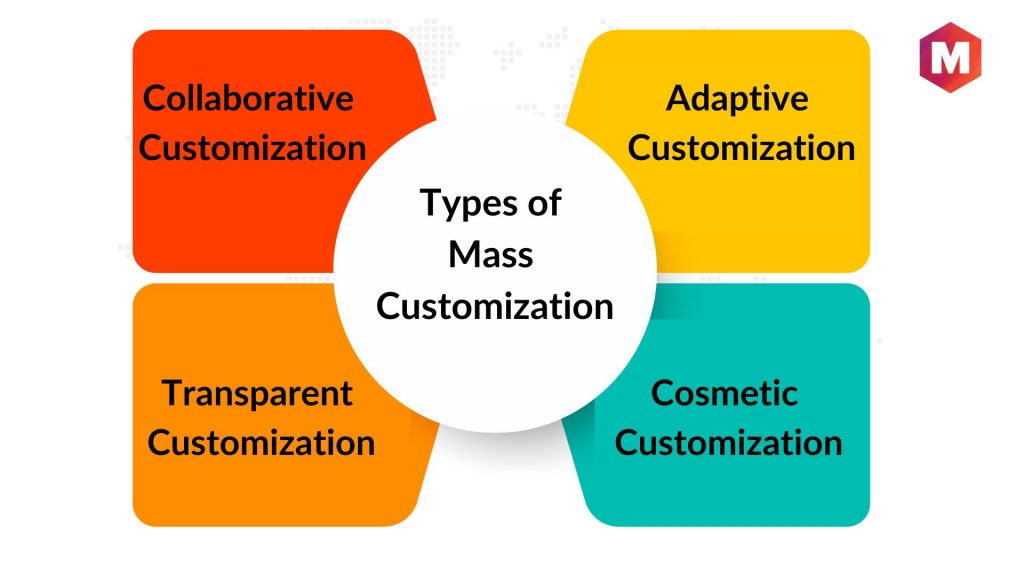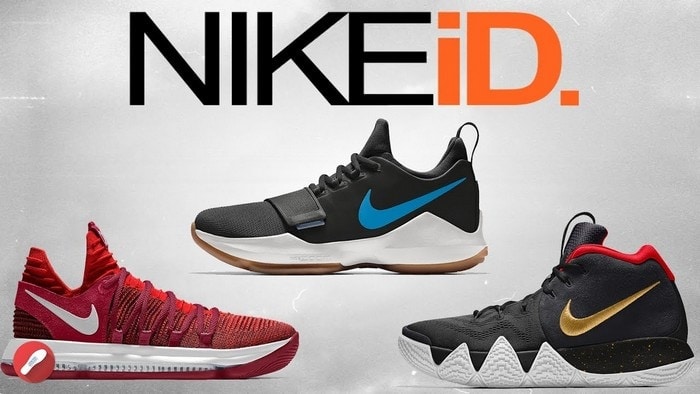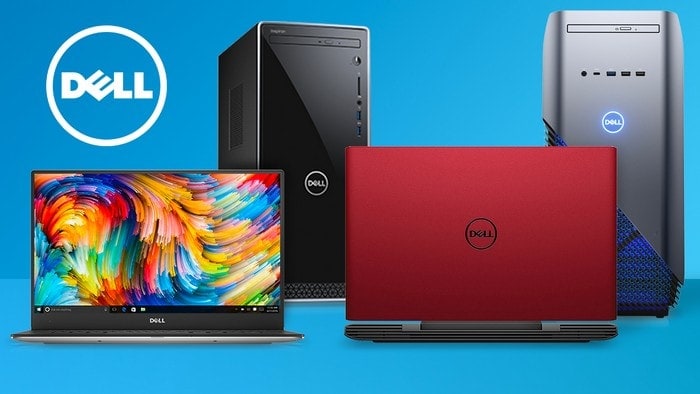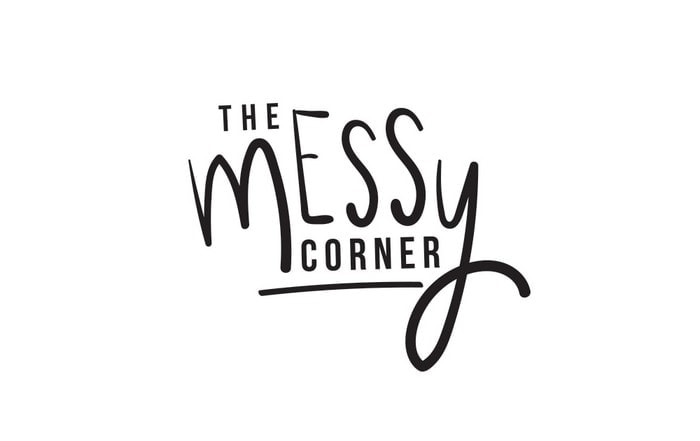The practice of businesses offering customized goods or services to each consumer to fulfill their specific needs is known as mass customization. The cost of these personalized items is the same as that of their mass-produced versions.
For instance, a shoe manufacturer might provide the choice of having shoes created to order based on the specifications and tastes of the buyer. The customer customizes the material type, color, size, and specific design elements like knots or symbols. The cost of the specially designed shoe is still the same as that of an ordinary pair.
Developments in manufacturing techniques and technology have made mass customization feasible. These days, businesses can quickly determine the preferences of their clients, find raw materials, and mass-produce customized products. By doing this, they can satisfy customer requests without raising prices or complicating their production process.
Mass customization blends the personalization of unique items with the ease of mass production. Consumers receive a base product with various characteristics to add or remove to create a customized product.
Table of Contents
What is Mass Customization?
Mass customization provides customers with distinctive products produced to order at costs comparable to mass production. Companies are increasingly adopting the branding idea to increase sales, as it is becoming trendy.
People for distinctive items are driving the popularity of mass customization. People would like their name embossed on a pocketbook, for instance. Thus, businesses manufacture standardized goods to the needs of specific clients.
Key Takeaways!
- Mass customization is a concept where customers are provided with unique custom-made products at mass-production prices.
- The adoption of mass customization can significantly enhance customer satisfaction and loyalty.
- Mass customization offers a competitive edge for businesses in today’s saturated markets.
- Technological advancements are pivotal in the cost-effective implementation of mass customization strategies.
Understanding Mass Customization Processes
The terms “made”to-order” and” build”-to-order” were” initially used in the market to introduce the idea of mass customization. Products were created specifically for the clients based on this mass customization process, but only after their order was placed.
Products “built” to order” or “made” to order” were” slightly more expensive than those produced in large quantities.
However, “mass”customization” was”established to allow buyers to customize things to their tastes. Customers can select from various features the seller offers and have a customized product made to their exact specifications.
The cost of items created through mass customization is comparable to or slightly higher than that of products made through mass production, which sets it apart from made-to-order and built-to-order approaches. To satisfy customer expectations, businesses that possess efficient mass-production capabilities can provide mass-customization services.
Not only do big businesses employ the principle of mass production, but small business owners also do. Entrepreneurs create mass-customization items with a fantastic level of innovation. To do this, they focus more on the design process and develop goods tailored to their clients’ requirements.
Additionally, since every consumer wants to be handled uniquely and businesses get insight into their preferences, mass customization helps entrepreneurs expand their firms. Using this customer data, they improve their business concepts and create goods that will enable them to provide their clients with the best possible service.
Businesses can choose from various mass customization options to improve their operations. Adaptive customization is a prominent kind of mass customization. Adaptive mass customization refers involves mass-producing the primary product and adding customized features after placing the order.
Since the consumer must pay before requesting customization, there are fewer opportunities for loss in mass customization. Adaptive customization is not the only kind of mass customization available. Let each of them individually.
The Growth of Mass Customization
Mass customization, which maintains efficiency while personalizing goods and services to individual preferences, has progressed far beyond traditional mass manufacturing and considerably impacts current economic landscapes. This idea encompasses several distinctive techniques:
Collaborative customization involves tight collaboration between businesses and customers to create items that meet the needs of the former.
- Adaptive Customization: This method provides clients with standardized products that they can alter to their preferences later.
- Transparent customizing: Although products are made specifically for each consumer, the customizing process is kept secret.
- Cosmetic customization: To appeal to diverse demographics, the presentation of the fundamental product is changed, but it stays the same.
Types of Mass Customization
1. Collaborative Customization
Customers may find this mass customization business idea to be a little pricey. It is intended for clients who wish to design highly personalized products and goods. Collaborative customization is the process of creating a customized product with the help of clients.
Using this approach, customizers speak with individual customers, to learn about their wants before using that information to produce their desired product.
This mass customization is appropriate for customers who are unsure of their particular preferences and need clarification on various alternatives.
The customizers assist them by reducing their selections and producing a particular product that satisfies their needs. Those who seek highly customized products and don’t have budget constraints choose this mass customization.
2. Adaptive Customization
Products under adaptive customization are not created from the ground up by the specifications supplied by the clients. However, the fundamental product is prepared through mass production, and clients can customize the primary product with a range of optional characteristics.
Incorporating this kind of mass customization into the current business model is simple. To offer consumers customized services, just minor adjustments must be made to the production process.
Because the underlying product is produced in large quantities, customized products are reasonably priced and accessible to all socioeconomic groups. For instance, an internet business sells Travel bags, passport covers, wallets, and purses in disorganized corners.
These products were mass-produced in many hues and patterns, and customers may choose from various alternatives for tags, titles, names, and other customizations to be carved on the objects.
Customers can choose whatever product they want to purchase and then, for a little extra cost, use the drop-down menu on the website to customize it with the characteristics they want carved on it.
For internet enterprises, adaptive customization works well for mass customization company ideas.
3. Cosmetic Customization
Cosmetic customization is an aspect of mass customization in which generic products and services are offered to distinct customers in various configurations. Many businesses choose cosmetic modification in response to consumer demand for personalized goods.
Corporations now provide standard items in various sizes, shapes, containers, and packaging options to satisfy client demands.
Products created by cosmetic modification typically bear the names of the consumers. For instance, the apparel industry has witnessed a recent surge in the cosmetic customization trend, with consumers shelling out billions of dollars for bespoke t-shirts, hoodies, and other items.
The debut of the plus-sized clothing line is just another illustration from the fashion business. In the past, clothing companies offered small, medium, and large sizes, but now, they offer a more comprehensive range of plus sizes. They can even order ready-made items tailored to their client’s needs.
The retail sector is likewise affected by cosmetic personalization. Retailers are choosing to use cosmetic customization to offer their customers personalized merchandise.
For instance, a baker now offers cakes produced with specific themes specified by the customer in addition to cakes made with standard ingredients and designs. They also employ various ingredients to create cakes tailored for clients with different medical issues.
4. Transparent Customization
One relatively novel and distinct kind of mass customization is transparent customization. Through ongoing behavior analysis, businesses developed ready items for clients through transparent enable mass customization.
Since it takes a lot more time and effort to understand the demands and preferences of the clients and their purchasing habits, this type of mass customization is less popular among businesses.
Nonetheless, with a little more work, this approach can be a great way to increase sales and win over clients when used correctly.
How Mass Customization Works
Companies should first determine the demands of their clients before creating a structure that allows them to personalize their products to those needs if they want to adopt mass customization successfully.
Typically, this process begins with a product concept or idea that the company and development team then work to develop further. Then, businesses use various resources, including software, machine tools, and trained labor, to create mass-customized goods.
In this approach, the business may give their clients customized solutions, giving them a competitive edge over rivals who merely make conventional products.
Additionally, businesses should ensure that their websites offer various customization options so that customers may select the characteristics they want from a product whenever it’s convenient. This will allow customers to personalize their purchases according to their requirements and expectations while creating a distinctive brand identity for the business.
Mass Customization Strategies
The demand for mass customization is increasing as more and more consumers seek personalized goods. Mass customization is challenging to implement in the business because there are many moving parts. Businesses market mass-produced goods because they are inexpensive to make and simple for workers to duplicate.
Every product is different. Thus, the process of making it will also differ. This will raise the cost of production, which will be reflected in the product. Consequently, to defend your company from higher prices, it is crucial to thoroughly consider your options before implementing a mass customization approach. This section will teach you about the many mass customization tactics you might use in your company.
1. Differentiate
These days, many businesses are entering the mass customization market and offering their clients bespoke items. Creating a distinct and one-of-a-kind product for every customer is challenging and demands a great deal of imagination and labor.
Along with managing all of this, you also need to deal with the growing competition in the industry and offer a range of choices that provide you an advantage over rival businesses. For instance, if you want to start a mass-customized firm in the apparel industry, add a theme to your product instead of merely creating custom-designed apparel.
You can work with a well-known actor or YouTuber to offer personalized clothing using their name and sayings. Making your brand stand out is a thriving mass customization tactic
2. Sell products at a standard price
This is the hardest part of starting a profitable mass customization company. Mass production was implemented to reduce production costs, resulting in a drop in the price of mass-produced goods.
However, today, people prefer to stand out from the crowd and receive special treatment rather than blend in. But how can mass customization be applied to this?
Lowering inventory, improving cash flow, raising customer happiness, and implementing a fast response mechanism are ways to do this. Additionally, costs can be reduced by contracting suppliers to handle the production.
3. Cut the intermediates between the company and its customers:
In a typical business transaction, the selling company and its clients go through at least three to four intermediaries. Consumers exclusively communicate with the retailers and never have the opportunity to engage with the company.
Eliminating intermediaries is necessary for successful mass customization to gather client wants straight from the source and avoid misrepresenting information obtained from intermediaries. By meeting clients’ needs, mass customization can be successfully achieved.
Examples of Mass customization
Many companies have opted for mass customization to advance their business. In this section, you will learn about a few examples of companies that have taken mass customization abroad.
1. Nikeid
One famous example of a successful business that has successfully implemented mass customization and profited from it is the sports shoe company Nike under the brand name NikeID.
The custom-made sports shoes of NikeID cost just 20% more than those made from mass production. Customers can get their name and photo printed on the shoes to get personalized shoes.
2. Dell computers
Dell Computers company is one of the oldest and most famous examples of mass customization. Dell started with the concept of mass customization. You can choose the components you want to include in your computer and get your laptop assembled as you wish.
3. The messy corner
The Messy Corner is an Indian Maharashtra-based company. This company works on the adaptive mass customization concept and sells customized products like wallets, passport covers, handbags, key chains, name tags, etc.
This company is becoming popular because of its easy-to-choice features and affordable prices.
Advantages of Mass Customization
- Happy and satisfied customers.
- Enhanced reputation of the company.
- Increased revenue.
- Your workforce gets to showcase their creativity.
- Lower inventory and unsold goods.
- less wastage of raw material
- There are fewer or zero chances of cancellation.
- Fast and efficient production process.
- Get to know your customers better.
Disadvantages of Mass Customization
- It is a tiring process of figuring out what a customer wants.
- The constant process of thinking about creative and innovative ideas to please customers.
- Keeping and maintaining a stock of a variety of materials.
- It is tiring to convince customers to pay the higher price charged.
- It is difficult to get an estimate of product demand.
- Need for highly flexible production technology and machinery.
- Expenses of maintaining direct customer relationships.
Benefits of Mass Customization
Mass customization offers various strategic advantages for companies looking to improve operational efficiencies and cater to a wide range of client preferences. The following are the main advantages of this business strategy:
1. Enhanced Customer Engagement:
By allowing customers to participate in the design and features of their products, businesses can customize products to not only meet specific consumer needs but also enhance customer engagement and satisfaction. Customers may choose between brands just on this personalized touch.
2. Strategic Marketing Advantage:
Businesses can stand out in a crowded market by using mass customization. Offering customized goods can help a business project a customer-centric image and draw in clients who value one-of-a-kind items over mass-produced alternatives. Higher brand loyalty and customer retention are frequent outcomes of this approach.
3. Operational Efficiency:
Mass customization easily interacts with just-in-time manufacturing processes to cut inventory costs. Businesses can maintain efficient production lines and minimize excess inventory by making products based on actual demand, resulting in significant cost savings.
4. Revenue Growth:
Businesses can charge higher costs when they offer personalization. Revenue can increase since consumers are generally prepared to pay more for things customized to their interests. Higher customer involvement and premium pricing usually translate into higher sales results.
What Industries Use Mass Customization?
- Mass customization is employed across various sectors, including:
- Banking
- Interior Design
- Prefabricated housing
- E-commerce
- Application development
Each industry applies unique customization to cater to customer needs, enhancing satisfaction and market reach.
How Does Mass Customization Benefit a Company?
Mass customization enables businesses to customize items to individual preferences in the last stages of production. Customers’ decisions to make personalized purchases are greatly influenced by this flexibility. This strategy helps companies to promote more effectively while increasing consumer happiness and loyalty.
Consider a furniture company allowing clients to choose the materials, colors, and designs for their couches rather than the typical examples of sneakers or laptops. This distinguishes the product from the consumer and helps the business stand out in a crowded market.
Opportunities for mass customization
Since a mass customization strategy allows businesses to produce customized goods at the economies of scale associated with mass production, it offers many opportunities. Without adding to producers, this strategy dramatically improves the value proposition for customers. It creates opportunities for unique differences, encourages creativity, and clears the path for market disruption.
When used creatively, mass customization can result in a more significant competitive advantage by enhancing the possible personalization level and, more obviously, differentiating items from rivals. In addition, the infrastructure required for implementing mass customization also improves operational agility, enabling producers to quickly adjust to alterations in market demand, design preferences, and technology breakthroughs.
The challenges of mass customization
Mass customization presents distinct challenges compared to conventional manufacturing processes since it requires careful planning ahead for the specialized machinery, sophisticated software, and knowledgeable staff needed to carry it out.
A significant barrier that often forces many businesses to stick with labor-intensive but inefficient production processes is the high upfront cost of the required infrastructure. Despite these difficulties, mass customization can have longer-term financial advantages and more significant creative potential due to the development of digital manufacturing.
Digital manufacturing enables mass customization.
Digital manufacturing makes it easier to create customized goods via Internet channels, giving customers the freedom to modify designs to suit their tastes. These unique designs are smoothly incorporated into manufacturing and transformed into exact production instructions using sophisticated programs.
Improvements in supply chain management efficiently synchronize labor and material resources to satisfy customization requirements. Even with the challenges associated with mass customization, predictive analytics is essential to maximizing production efficiency and making the transition both practical and profitable. The need to adopt this paradigm is growing as customer demand for customized items rises.
Mass Customization vs. Mass Production
The approaches of mass production and mass customization meet the needs of the market and fundamentally different corporate ideologies. Understanding the differences between these two methodologies is vital for experts and firms seeking to synchronize their production strategies efficiently.
Mass Customization:
- Tailored Approach: Even when mass customization is done in large quantities, the goal is to manufacture products tailored to each customer’s requirements.
- Consumer Engagement: This model involves active consumer involvement throughout the production lifecycle, with customer preferences driving the production process. As a result, there is a stronger bond between the client and the item.
- Manufacturing Setup: A flexible production setup with multiskilled staff and adaptable processes is needed to move between different client needs.
Mass Production:
- Standardization: This traditional manufacturing strategy aims to minimize variation between units by mass-producing large quantities of standard products.
- Predictable Consumption: Mass production enables economies of scale, which lowers the cost per unit and is ideal for markets with steady demand.
- Labor and Capital: Mass production prioritizes repetitive operations that don’t go from one unit to the next, using specialized machinery and requiring less talent from workers.
Operational Differences:
- Mass production is often more viable and cost-effective in industries where customer individuality is less concerned—such as essential commodities. In contrast, markets that value personalization, such as tech gadgets or personalized apparel, might lean towards mass customization.
Applicability to Business Scale:
- Small businesses may initially find mass customization too complicated and expensive, preferring bulk production if it suits their needs. On the other hand, larger companies might be more capable of managing the expenses and complications related to mass customization.
Customer Role:
- Mass production has little to no passive consumer connection; in contrast, mass customization encourages proactive client involvement that gives customers a sense of co-creation.
FAQs
Q1: What is mass customization?
Mass customization is a production strategy aimed at satisfying individual consumer needs while maintaining high efficiency in mass production. Companies produce standardized modules that can be reconfigured to customer specifications while meeting their expectations.
Q2: How does mass customization differ from mass production?
While mass production focuses on manufacturing large quantities of the same product, mass customization tailors products or services to individual customer requirements, balancing efficiency with customization.
Q3: How does mass customization benefit consumers?
Mass customization allows consumers to tailor products to their needs and preferences, enhancing customer satisfaction. It also enables them to engage in the design and manufacturing process.
Q4: Can mass customization be applied to all businesses?
Mass customization is most effective in industries where customer preferences are diverse and rapidly changing. It requires flexible production technology and maintaining direct customer relationships, which might be challenging for some businesses.
Liked this post? Check out the complete series on Marketing





Don’t you think the HBR source of 4 Faces (types) of Customization ought to be referenced?